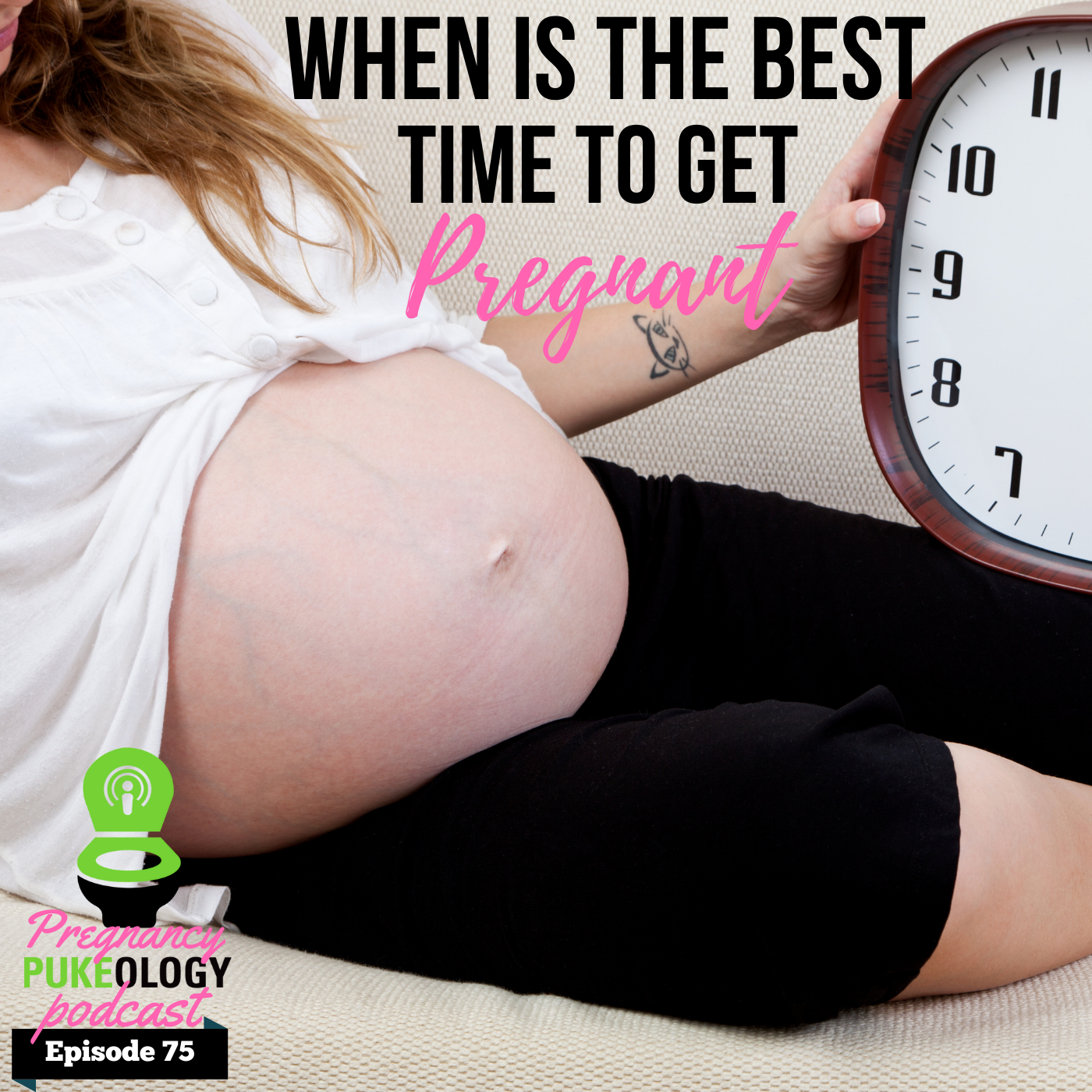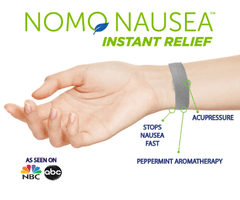
When Is The Best Time To Get Pregnant?
Today you will learn the science behind how long does it take to get pregnant, when are you most fertile, and the best time to get pregnant in our fertility podcast Pregnancy Pukeology. Plus don’t miss out on foods that make you the most fertile plus some doctor advice on making the baby of your chosen sex right now Pregnancy Pukeology Podcast Episode 75: When is the best time to get pregnant?
Listen to "How Long Does It Take To Get Pregnant? Pregnancy Podcast Pukeology Ep. 75" on Spreaker.
Pregnancy can cause head aches, nausea, migraines, and more. Look into NoMo bands to help prevent these issues from disturbing you!

Are you thinking about having a baby? You’re probably wondering when is the best time to get pregnant?
While you obviously know that baby is made when female egg (ovum) and the male egg (sperm) fuse, some women fail to conceive despite having regular intercourse with their partners.
If you are having difficulty getting pregnant, it could be because you are doing it when it is not the best time to get pregnant. Read on to learn more about when your body is most ready to get pregnant.

What you should do before getting pregnant
Getting pregnant is sometimes every mom should plan for and ensure that they are well mentally and physically prepared to carry the baby until term.
We recommend that you go for preconception counseling before conceiving. Your physician will help you make an informed decision about your reproductive health. You will also learn how to stay healthy before conceiving, during pregnancy, and after having a baby.
Also, counseling helps you understand the ways of preventing transmission of infection to your growing baby. During counseling, your physician will perform a genital examination and ask you to do a screening test for diseases such as HIV/AIDs and urinary tract infections that may affect your baby.
When is the best time to get pregnant?
To better understand the best time to get pregnant, here is a quick review of the normal menstrual cycle.
The menstrual cycle varies among women. Some women have a short menstrual cycle lasting for about 23 days, while others last for 35 days. However, a majority have a 28 cycle period.
The first day of your menstrual cycle is the day you first start seeing your period. The day you are more fertile to get a baby is usually day 14 from the start of your period. This period is called ovulation, and it occurs between days 12 and 16 from the beginning of your period.
During ovulation, the ovum is released from the ovary. Therefore, you will conceive if you have intercourse two days before and a day after ovulation.
How long does it take to get pregnant?
Most couples, about 84% that’s 84 out of every 100 couples trying to get pregnant) will get pregnant within a year if they are having regular sex and don’t use contraception. Some women get pregnant really quickly, especially if they are timing sex around ovulation will conceive within a month. 1 in 3 women under 40 that are having sex every 2 to 3 days during ovulation will get pregnant during the first 30 days, but the majority will be about a year, and 9 out of 10 couples will get pregnant by year 2.
How do you get pregnant fast?
Now that you know when it is the best time to get pregnant, here are methods to help you plan for pregnancy after your period.
1. Ovulation kits
The ovulation kits helps you track when ovulation is likely to occur each month, thus allowing you to realize the best time to have intercourse to get pregnant.
Having ovulation kits will help you do the test each morning before getting out of bed. For example, if you have a 28 menstrual cycle, your fertile window is on day 14 from the first day of your period. Therefore, you should use ovulation kits from day 11.
When the test turns positive, it means your ovulation period is soon coming, and having intercourse 2-3 days following a positive test will increase your likelihood of getting pregnant.
2. Ovulation calculator
Ovulation calculator is an alternative method to help you establish when your fertile window. The good news is that there is much free ovulation calculator available online which are easy to use.
In most cases, you will be asked to select the date of your last period, the average length of your cycle, and the ovulation calculator will generate the period of your fertile window, approximated ovulation date, and your next period.
3. Basal body temperature charting
During the ovulation period, your basal body temperature increases by 0.4 to 1.0 degrees. Therefore, taking your morning body temperature and charting it on a graph daily will help you establish when it is the best time to conceive.
If you plan to use basal body temperature charting to establish the best time to get pregnant, you should have intercourse 2-3 days before your morning temperature hits the peak.
4. Monitor the life cycle of your cervical mucus.
Usually, your cervical mucus is thick, sticky, and dry when you are not in your fertile period. Having sex during this period lowers your chances of getting pregnant because the thick cervical mucus act as a physical barrier to the sperm.
However, the cervical mucus becomes thin, slippery, transparent, and stretchy during your fertile window. Thus having intercourse during this period increase your chances of getting pregnant.
Fertility foods that increase fertility in females

Ladies who want to get their eggs jumping, here are 10 foods to start incorporating into your diet in order to boost your fertility naturally.
1. Beans and Lentils
“I have BEAN thinking about you.”
Beans and lentils are an excellent source of fiber and protein, which has been proven to improve ovulation. These studies suggest that by replacing animal protein with proteins from a vegetable source can reduce the risk of ovulatory infertility. Both of these legumes, no it’s not a bad word but a class these beans are apart of, are also an excellent source of folic acid! Folic acid, a B vitamin that helps reduce the risk of neural tubal defects in babies also aids with conception and helps in healthy embryo development. That’s why all good prenatal vitamins have folic acid as the main ingredient. Want to find out which prenatal vitamins are best? Listen to Pregnancy Podcast Pukeology Episode 3: Why Take Prenatal Vitamins.
2. Berries
“You are BERRY special to me pregnant mamas.”
Berries of all kinds including raspberries, blueberries, and strawberries all contain antioxidant-rich foods that are high in vitamin C and folic acid that aids in healthy fetal growth after conception. All 3 berries have natural antioxidants and anti-inflammatory phytonutrients, two components that greatly improve fertility for both men and women. This study showed that women with high fruit intakes had a significantly reduced chance of infertility.
3. Avocados
“You GUAC my world.”
Avocados are full of Vitamin K, potassium, and folate that assist your body in many ways including vitamin absorption, blood pressure regulation and more! They are also comprised of monounsaturated fats, healthy fats, that offer tons of dietary fiber and folic acid, which we know are crucial during the early stages of pregnancy. A high fiber diet also decreases the chances of constipation during pregnancy. Learn more about Why Constipation in Pregnancy in Pregnancy Podcast Episode 77.
4. Quinoa
“Not to brag but I’m QUINOA big deal.”
Quinoa, better known as the carb free substitution for rice, is an amazing whole grain that is a perfect source for protein, zinc, and folic acid. Maintaining healthy fetal growth once pregnancy takes place. Not to mention, quinoa gives you all of the essential amino acids that meat products offer without any potentially harmful additives.
5. Greek Yogurt and Cheeses
“YOGURTa be kidding me.”
Fatty foods like yogurt and cheeses are great for boosting fertility. Greek yogurt and cheese contain calcium, probiotics, and vitamin D, all of which help improve ovulation and support a healthy maternal gut. Plus you’ll get an ample amount of protein from these foods within the milk family, reinforcing your odds of a successful pregnancy through more precise ovulation cycles.
6. Egg Yolks
“EGG-cellent”
To eat the yellow or not to eat the yellow, now that’s the question. I’m not YOLKing around but most people ditch the yolk of the egg to cut back on calories, but if you’re trying to get pregnant the yolks contain vitamin B and essential omega-3s. Yolks also contain folic acid which helps the body create red blood cells, which carry oxygen to all the cells, and help to maintain embryo development after conception.


